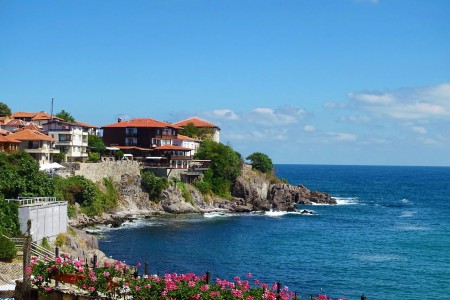Why Bulgaria became the second hottest real estate market in the EU in 2025

In 2025, Bulgaria’s real estate market has captured the attention of European investors. According to Eurostat, the country ranks second in terms of price growth among all EU member states, surpassed only by Portugal. In the first quarter of 2025, property prices in Bulgaria rose by 15.1%, a record figure for the local market and a clear signal of its investment potential.
What Drives the Sharp Price Increase
The main engine of growth is strong foreign demand combined with active domestic buying. Sofia, Plovdiv, and Varna are showing confident growth, and in the capital, the price per square meter has nearly tripled over the past decade, reaching around €2,100. This is fueled by urban population growth, rising rental demand, and relatively affordable mortgage loans.
Resort areas are also developing rapidly. Bulgaria’s Black Sea coast—particularly Nessebar, Sveti Vlas, and Sunny Beach—attracts buyers not only as a holiday destination but also as a source of rental income. Compared to similar properties in Spain or Greece, prices here remain much lower, while the growing tourist flow ensures stable occupancy of apartments and holiday homes.
The Impact of the Euro and Investor Confidence
One of the most important factors for future growth is Bulgaria’s expected entry into the eurozone. Switching to the euro increases foreign investor confidence, reduces currency risks, and makes the market more predictable. The experience of other countries shows that in the first years after adopting the common currency, real estate prices typically rise at an accelerated pace. This explains why demand for Bulgarian property from Europeans and Middle Eastern buyers continues to intensify.
Who Buys Property in Bulgaria
According to recent statistics, the number of transactions with foreign buyers has grown by around 20% compared to last year. The strongest interest comes from citizens of Germany, Poland, Israel, and Scandinavian countries. Two-bedroom apartments in cities and holiday homes by the sea are the most popular options, as they can be rented to tourists. There is also growing demand for countryside houses and villas, especially among those seeking peace and the possibility of relocating permanently.
Is There a Risk of Market Overheating?
Analysts note that 2025 could mark the peak of rapid price growth, with the market expected to gradually slow down afterward. Forecasts suggest that annual growth will stabilize at around 10%. For investors, this means the “window of opportunity” is still open, but in the coming years it will be crucial to choose properties carefully, focusing on liquid locations and promising segments.
What This Means for Investors
Today, Bulgaria offers a rare combination of factors: affordable prices compared to other EU countries, a strong tourist flow, attractive rental prospects, and the upcoming switch to the euro. All of this makes the country an appealing destination for real estate investment.
For those considering a purchase, the most promising options remain:
- apartments on the coast for tourist rentals;
- urban properties in Sofia and Plovdiv with strong appreciation potential;
- countryside houses and villas for long-term investment and personal use.
Thus, in 2025 Bulgaria can rightfully be considered one of the most promising real estate markets in Europe. In the coming years, the country will remain in the spotlight of investors, and making the right choice of property could bring both stable income and capital growth.

